5 steps to organize your read-a-thon fundraiser
- Set the ground rules
- Create a tracker
- Promote the event
- Start collecting pledges
- Celebrate everyone’s success
If you work in education, you probably know how important it is to encourage your students to read. In fact, a recent study of 4,000 students across the United States showed that if a student isn’t reading proficiently by the third grade, their chances of dropping out of school are four times higher.
One way you can get students excited about reading is by holding a read-a-thon, and it comes with an additional benefit if you make your read-a-thon a fundraiser. This can be a great alternative to selling goods and services if you’ve exhausted wrapping paper and candy sales.
And asking children to read in order to raise money for their school is not only educational, but it instills good habits for the future as well. Long after completing their read-a-thon challenge, students might continue to choose reading over less educational activities.
Children of all ages can take part in a read-a-thon, whether they’re breezing through novels or still working through picture books. If you’re not sure how to get started with your read-a-thon fundraiser, we’ll share some steps to get your students reading and raising money for your school in no time.
What is a read-a-thon?
If you’re not familiar with the concept of a read-a-thon, it’s a fairly simple fundraiser that you can set up in a variety of different ways. The basic idea is that students collect pledges from family, friends, and neighbors for their participation in some form of reading activity.
Typically, schools will designate a period of time in which students will read as many books as possible and collect donations for their school based on how much they read. The students can read in school or at home, and they can potentially win awards at the end of the read-a-thon if you make it into a friendly competition.
5 steps to organize your read-a-thon fundraiser
Now that you have the basic gist of how a read-a-thon fundraiser works, here are some tips for ensuring it’s a success for the students, donors, and administrators.
1. Set the ground rules
Before you can get your read-a-thon fundraiser up and running, you need a basic plan to communicate to your participants. Here are a few questions you might want to consider:
- Will students read at school, at home, or both?
- Will you count the minutes students spend reading, the pages they’ve read, or the total books they’ve completed?
- How long will the fundraiser last?
- Will you have awards or prizes for top readers?
Once you’ve answered these important questions, you’ll have to clearly explain the rules to the students (and their parents) before they head to the library. If you offer awards, tell the kids at the beginning of the read-a-thon about the prizes to get them even more excited to participate. You may consider awarding a prize to the student who reads the most books, raises the most money, collects donations from the most people, or any other goals you think might work well.
2. Create a tracker
A read-a-thon can be very exciting, especially for young students who are just getting comfortable reading on their own. When you start your fundraiser, you need an easy way to track all of the students who’ll be participating.
A great way to do this is through Jotform signup forms. Or, if your entire class is participating, you can enter all of their names into a tracker in Jotform Tables. The students or their parents can easily update the tracker so you can keep an ongoing tally of how much each student is reading. Plus, if the students see the totals in real time, this can encourage them to keep reading more each day.
3. Promote the event
Educational fundraisers get a lot of positive attention in the community, so once your read-a-thon is up and running, start promoting it around town. Local businesses, restaurants, and churches may let your school hang flyers so you can get more pledges for your students.
Another way to generate buzz around your read-a-thon is by holding an event. Consider doing a book swap, where students can bring in the old books they’ve already read and collect new ones to add to their reading list. People in the community can bring their old books to the swap as donations or make monetary donations to the read-a-thon fundraiser at the event.
4. Start collecting pledges
The most important part of the fundraiser to get right is the pledge collection process. Some larger read-a-thons raise tens of thousands of dollars for schools, so it’s crucial to make sure you have a safe and efficient way to collect donations.
Luckily, it’s easy to add a payment widget to any form you create on JotForm. You can use PayPal, Stripe, Square, and several other popular payment gateways. Just use the online donation form or create one from scratch with the Form Builder.
To make things even easier, you can view the students’ donation forms in your tracker. That way, as soon as a student receives another pledge via their online form, the tracker will automatically update with their new fundraising total.
For more details on how your form-collected data populates tables, check out the Jotform Tables features page.
5. Celebrate everyone’s success
Finishing a read-a-thon is nothing to take lightly — some of your students may have read more in this short period of time than they’ve read in months! Reward their hard work with a fun celebration, and make it a memorable event they can look forward to.
Check in with some of those small businesses and restaurants you left flyers with and see if they’d be interested in donating food or party supplies to make the celebration a hit. Some businesses might be interested in donating prizes for the winning readers too.
At the celebration, you can reveal which students raised the most money or read the most books. And if the read-a-thon is a success, plan to hold it annually to promote literacy and good reading habits for your students in years to come.






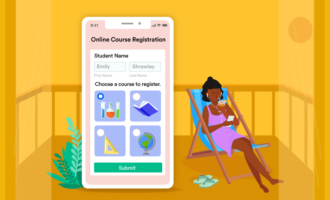
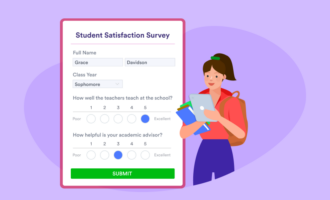









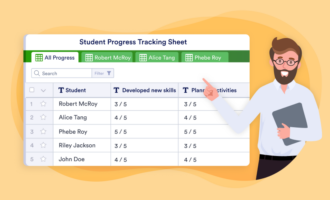















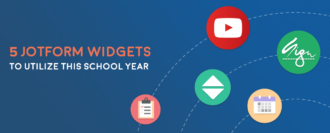






















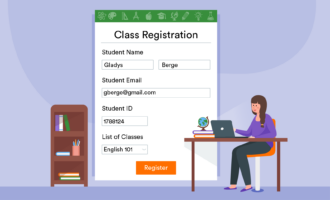









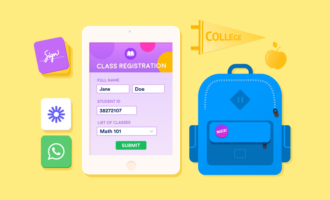


































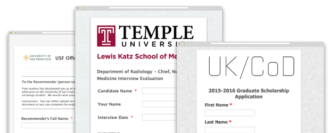


Send Comment:
1 Comments:
More than a year ago
Good Morning! Our location is the territorial island of Guam, located in Asia Pacific. Would we be able to use your program here? How would this work for us? Are they taxes, additional hidden fees we would have to pay?